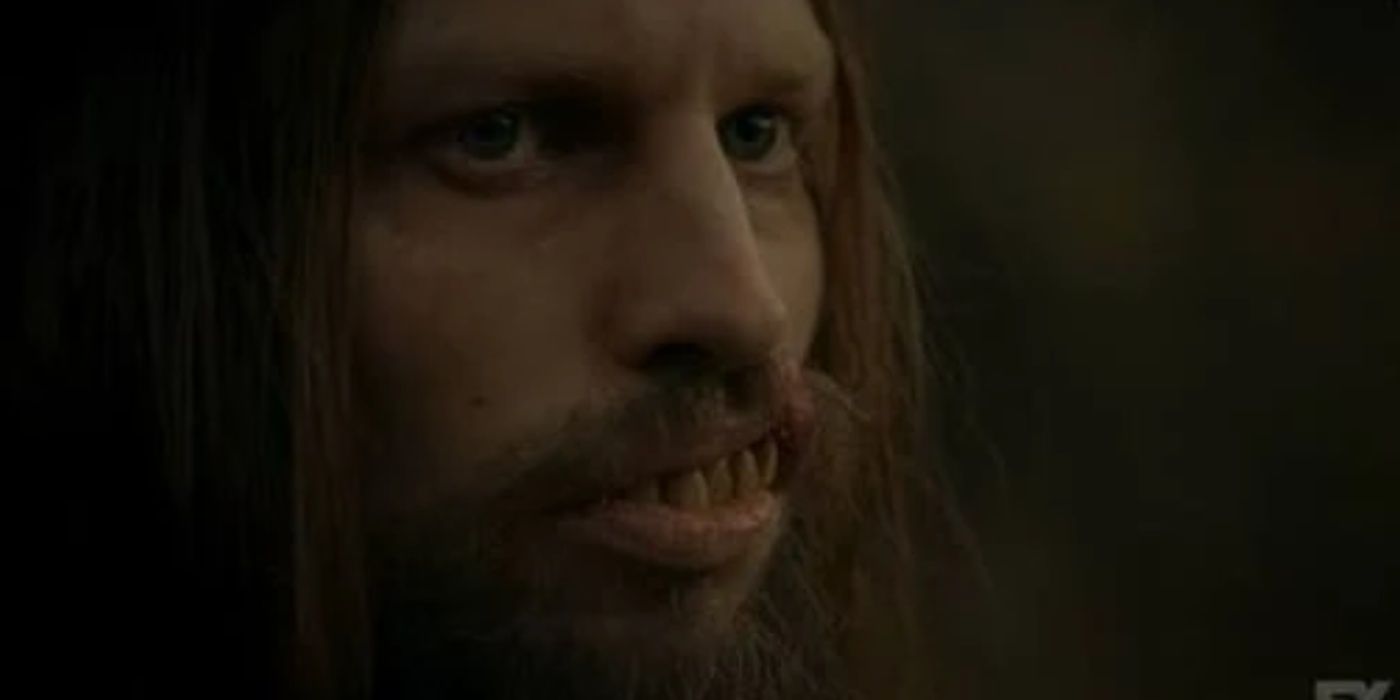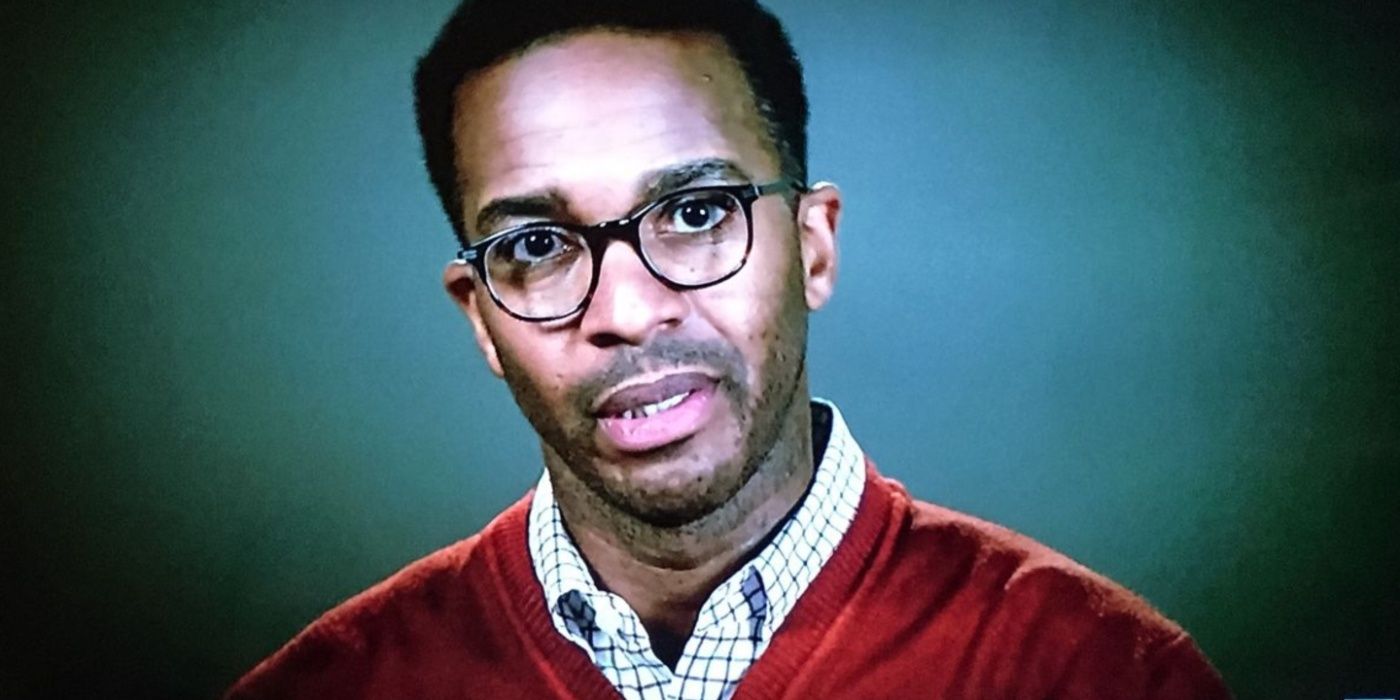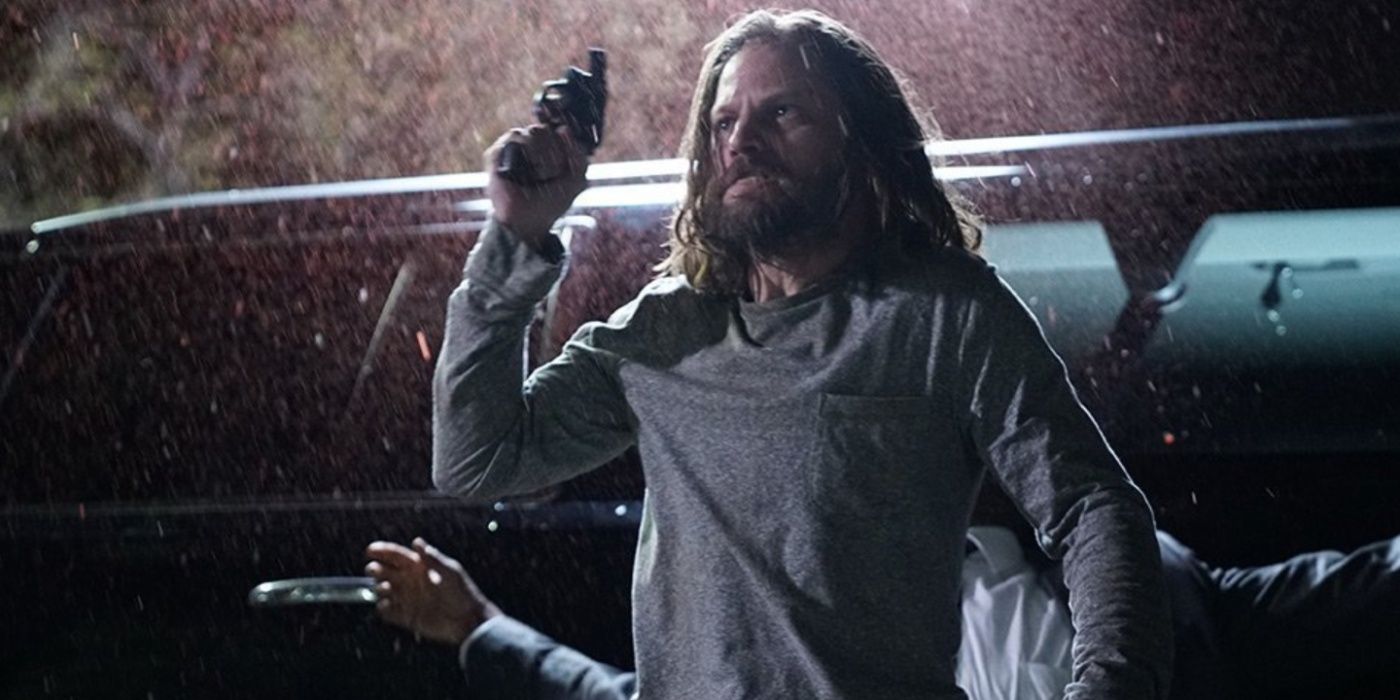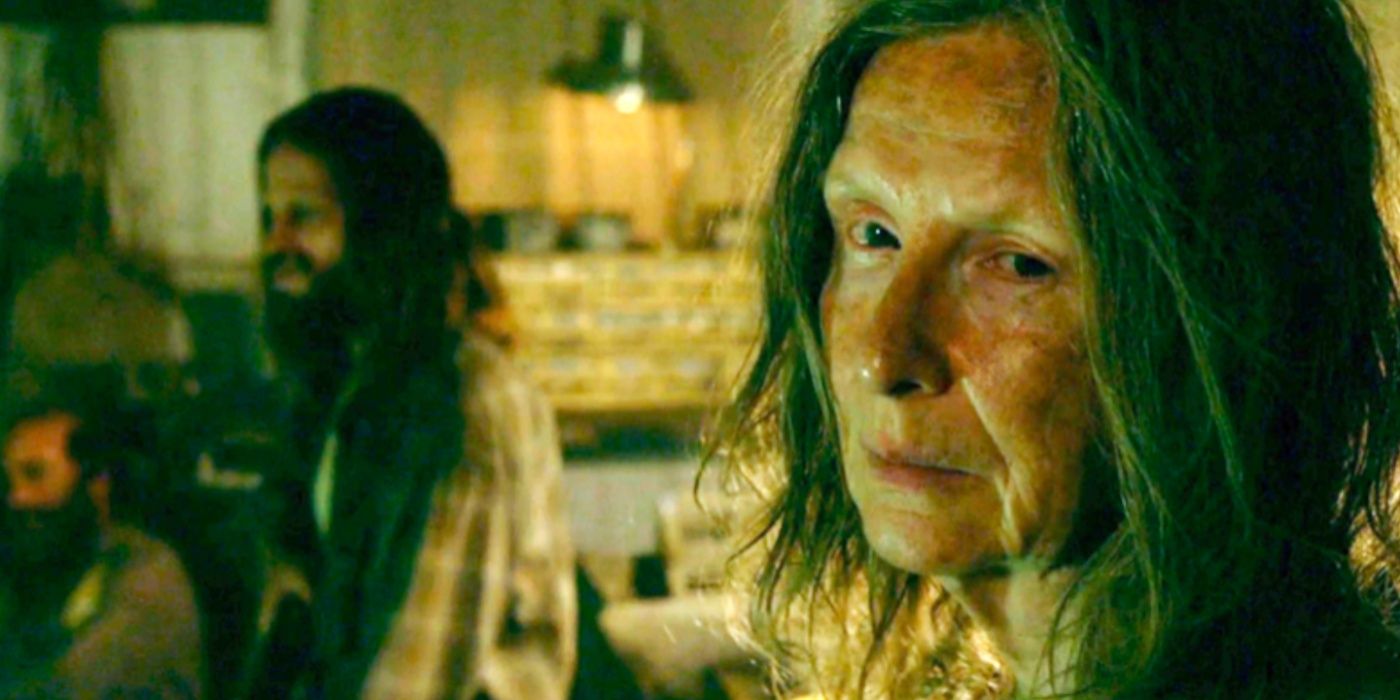American Horror Story: Roanoke delves into the enigmatic disappearance of the Roanoke Colony, and Caine in American Horror Story is one of the most interesting villains. Generally considered the worst American Horror Story season, Roanoke still breaks new ground with its presentation style, adopting a documentary format mixed with found footage that intensifies the horror and mystery. The storyline follows a couple who moves into a haunted house near the site of the lost colony, only to find themselves ensnared in a terrifying web of ghostly apparitions, savage locals, and a sinister history that refuses to stay buried.
Within this haunting backdrop, the Polk family emerges as a memorably malevolent force, their barbarity and depravity adding a layer of visceral terror to the season’s supernatural hauntings. As descendants of the region with a dark and twisted legacy, the Polks embody the human capacity for evil, serving as a grim counterpoint to the ghostly horrors that plague the protagonists. Through the chilling saga of the Polk family, American Horror Story: Roanoke crafts a riveting tale of horror that intertwines the spectral with the all-too-human, ensuring its place as a standout season in the series’ storied run.
Cain Polk Is A Member Of The Villainous Polk Family In American Horror Story: Roanoke
The Polk Family Are A Group Of Cannibalistic Hillbillies

The Polk family’s backstory is rich with horror tropes, drawing parallels to real-life and fictional accounts of cannibalism and isolation. Their appearance in the show serves as a bridge between the supernatural horrors of the Roanoke colony’s ghosts and the all-too-human capacity for violence and cruelty. Cain Polk’s importance to the storyline cannot be understated; through his actions, viewers are given a stark view into the depravity that the series argues is an indelible part of American history. His character embodies the horror that lies in humanity’s darker impulses, making the Polks unforgettable American Horror Story villains.
Cain Is Killed By Matt Miller
The Death Proves That There Are No True Heroes Or Villains

Cain’s demise at the hands of Matt Miller in American Horror Story marks a pivotal moment in the Roanoke season, symbolizing not just a moment of retribution but also a deeper commentary on the cycle of violence and revenge. His death, while satisfying to viewers who have seen the extent of the Polk family’s atrocities, does not bring peace or resolution to the haunted land or its inhabitants. Instead, it underscores the season’s ongoing theme that violence only begets more violence, and that the historical and supernatural horrors of the land are deeply intertwined.
Cain’s death in the 2010s set American Horror Story: Roanoke can be seen as a microcosm of the season’s larger narrative battles. It highlights the thin line between victim and perpetrator, as those who have been tormented become tormentors themselves in their quest for survival or vengeance. This blurring of moral lines is a recurring motif in American Horror Story, and Cain’s death serves to emphasize the idea that in the world of Roanoke, there are no true heroes or villains, only survivors and victims caught in a never-ending cycle of horror.
Where You’ve Seen Cain Actor Orson Chaplin
The Cain Actor Is Charlie Chaplin’s Grandson

Chaplin’s role as Cain Polk in American Horror Story: Roanoke stands out as a pivotal moment in his career, bringing him into the spotlight and showcasing his ability to embody a truly dark and twisted character. His portrayal of Cain Polk was both chilling and nuanced, adding a layer of depth to the horror and suspense of the series. Through this role and his other projects, Chaplin has proven himself to be a talented and versatile actor capable of bringing a wide range of characters to life, making him a memorable presence in American Horror Story.
Why The AHS Polk Family Looks Familiar
There Are Several Parallels With The X-Files’ “Home”
The eerie resemblance between the Polk family in American Horror Story: Roanoke and the Peacock family from The X-Files’ infamous episode “Home” has not gone unnoticed by fans of both series. The Peacock family, like the Polks, were depicted as an isolated, inbred family with a penchant for violence, leaving a memorable mark on the show’s audience due to their grotesque lifestyle and brutal actions. This similarity has led some to speculate whether the creators of AHS drew inspiration from The X-Files, crafting the Polks as an homage to the Peacocks.
While there has been no official commentary from the cast or crew of either show confirming this connection, the thematic and aesthetic parallels between the two families are striking. Both serve as extreme representations of the horrors that can arise from isolation and the breakdown of societal norms, embodying fears of the unknown and the monstrousness that can lurk within the familiar. Whether intentional or coincidental, the resemblance adds a layer of intertextual richness to the viewing experience, inviting comparisons and discussions among fans of the horror genre.
In the absence of explicit acknowledgments from the creators, it’s tempting to speculate on the nature of this similarity. It could be seen as a nod to the influential legacy of The X-Files on genre storytelling or as an unintentional convergence of common horror tropes. Regardless, the Polk family’s eerie echo of the Peacocks adds a layer of depth to their role in American Horror Story, enriching the season’s exploration of American myths and legends through the lens of television’s most unsettling families.



